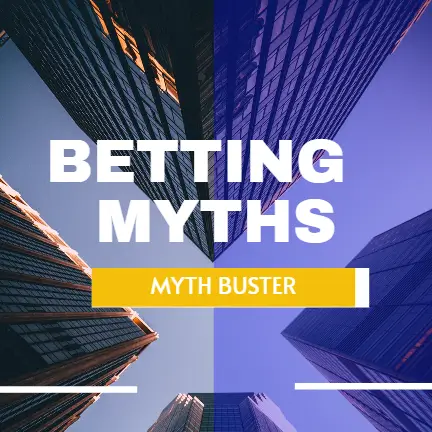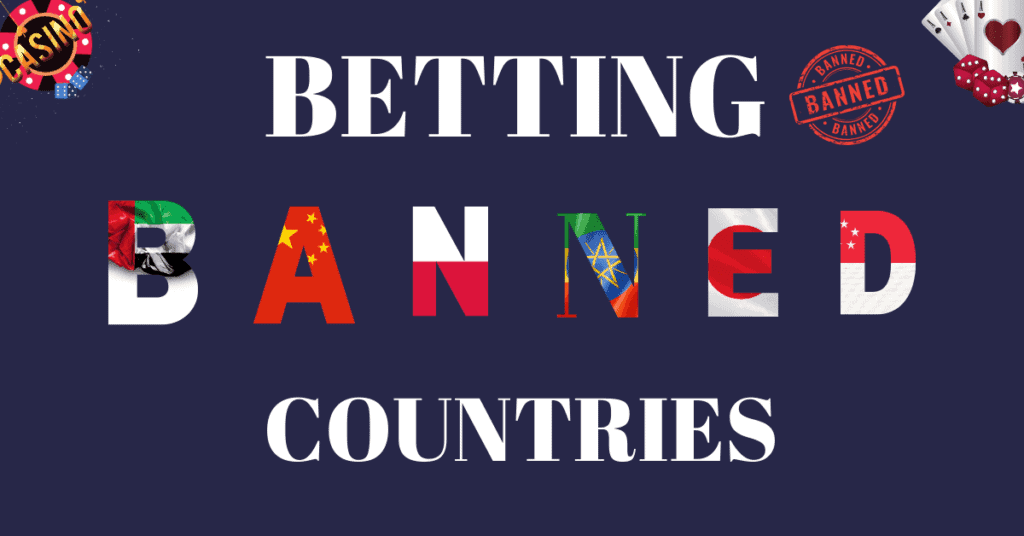The world of gambling beckons with an irresistible allure, whispering promises of fortune, excitement, and escape. But beneath the glittering facade lie hidden truths, shrouded in gambling myths and misconceptions.
Today, we embark on a journey to uncover the facts, separating reality from fallacy and empowering informed choices.

Gambling Myths and Facts
Myth #1: Gambling is a guaranteed path to riches.
Fact: The glamorous image of rags-to-riches winners is a carefully crafted illusion. Casinos meticulously design games to ensure their long-term profit, with the house edge always tilted in their favor.
While individual wins do occur, relying on gambling for consistent income is akin to chasing smoke and mirrors. In reality, most gamblers experience net losses, jeopardizing their financial security in pursuit of an improbable fortune.
Myth#2: Only “weak” people get addicted to gambling.
Fact: Addiction is not about moral failing, but a complex phenomenon rooted in brain chemistry. Gambling triggers dopamine release, creating a pleasurable feedback loop. For individuals predisposed due to genetics, mental health issues, or even early exposure, this activation can become compulsive, leading to addiction with severe consequences.
Myth #3: Online gambling is just harmless fun.
Fact: The internet has turned the game tables. Online platforms provide 24/7 access, anonymity, and instant gratification, blurring the lines between casual play and problematic behavior. The convenience becomes a dangerous trap, especially for vulnerable populations, fueling the potential for addiction and escalating consequences.
Myth #4 : Chasing losses can “even the score” with lucky streaks.
Fact: The gambler’s fallacy, a cognitive bias that distorts reality. Each gambling event is independent, regardless of past outcomes. Trying to “win back” losses only deepens the financial hole, perpetuating the cycle of addiction and exacerbating its impact.
Myth #5: Gambling addiction is an adult problem.
Fact: A worrying trend. Research indicates a concerning rise in gambling addiction among adolescents and young adults. Easy access to online platforms and normalized gambling through advertising and social media contribute to this vulnerability. Early intervention and education are crucial to protect younger generations from these risks.
Myth #6: There’s no escape from the grip of gambling addiction.
Fact: Hope is always available. Numerous resources exist, including support groups, therapy programs, and dedicated helplines, offering a lifeline for recovery. Early intervention and professional support can empower individuals to manage their addictive behavior and build a healthy life free from gambling’s control.
Myth #7: I gamble for entertainment, not money.
Fact: While entertainment may be the initial motivation, the brain’s reward system can quickly take over. Even casual play can trigger dopamine release, making gambling increasingly seductive and potentially leading to increased stakes and financial risk.
Myth #8: Winning big will solve all my problems.
Fact: The “Big Win” fantasy often fuels a vicious cycle. Chasing elusive victories can exacerbate financial difficulties, damage relationships, and deepen emotional distress. Focusing on healthy coping mechanisms and financial responsibility offers a more sustainable path to well-being.
Myth #9: I can control my gambling behavior.
Fact: Addiction disrupts self-control mechanisms. Compulsive gamblers often experience cravings, denial, and difficulty setting boundaries. Seeking professional help and utilizing support resources can empower individuals to regain control and manage their behavior effectively.
Myth #10: My family won’t understand my gambling problem.
Fact: Shame and secrecy often accompany gambling addiction. However, seeking support from trusted loved ones can be crucial for recovery. Open communication and access to appropriate resources can provide the necessary understanding and encouragement for healing.
Myth #11: If I stop gambling, I’ll be bored.
Fact: Life beyond gambling offers a wealth of fulfilling experiences. Exploring hobbies, building meaningful relationships, and focusing on personal growth can replace the void left by gambling and pave the way for a more enriching and satisfying life.
Myth #12: Gambling is harmless if I do it alone.
Fact: Social isolation exacerbates addiction. Connecting with support groups, therapy sessions, and family can provide a sense of belonging and accountability, strengthening resolve and promoting effective recovery strategies.
Myth #13: There are no legal ramifications for gambling addiction.
Fact: Legal consequences often accompany gambling-related debts, fraud, and financial mismanagement. Seeking legal advice and addressing legal issues can be crucial for rebuilding financial stability and avoiding further complications.
Myth #14: Gambling addiction is incurable.
Fact: Recovery is always possible. With dedication, professional support, and access to resources, individuals can overcome gambling addiction and build a healthy, fulfilling life.
Myth #15: Only casinos and slots contribute to gambling addiction.
Fact: The landscape of gambling has expanded. Lottery tickets, scratch-off games, sports betting, and online platforms present various avenues for addictive gambling behaviors. Be mindful of these diverse forms and their potential risks.
By debunking these common myths and embracing the facts, we can empower individuals to make informed choices, navigate the world of gambling with awareness, and prioritize well-being above the temptations of chance.
Remember, knowledge is power – use it to promote responsible gambling, protect yourself and others, and foster a healthier relationship with this complex phenomenon.

Prasanth is a passionate betting blog writer with a 5-year track record of delivering insightful content for Sports, E-sports, Casino, and horse racing betting. Blending expertise and creativity, he decodes the intricacies of gambling, providing readers with strategic insights, tips, and a deeper understanding of the betting world.


